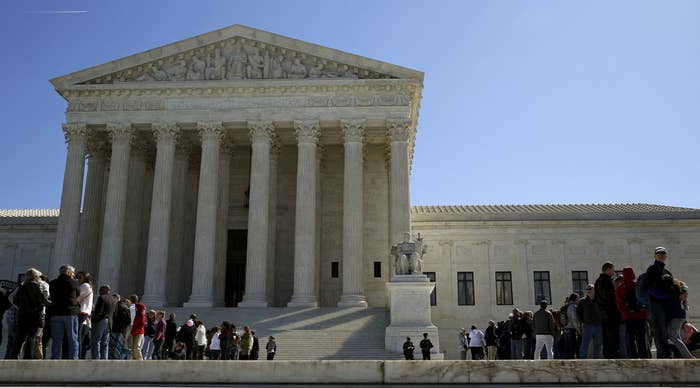
WASHINGTON — The Supreme Court on Monday punted on the questions of whether and how religiously affiliated nonprofits must object to providing insurance coverage for contraception under Obamacare, sending 13 cases back to lower courts for further consideration.
In the brief, unsigned opinion in the cases, which was read in court by Chief Justice John Roberts, the court announced that its decision "expresses no view on the merits of the cases," which were claims made under the Religious Freedom Restoration Act by religiously affiliated groups from the Little Sisters of the Poor Home for the Aged to several colleges and universities.
At issue is the form religiously affiliated nonprofits must fill out if they object to providing insurance coverage for contraception under Obamacare — the “accommodation” to the contraception mandate — and the protections provided by RFRA to the nonprofit groups’ religious interests. (Churches do not need to fill out the form; they are automatically exempted.)
In the decision, which likely was the result of the court being unable to reach a majority decision on the issues, the court sent the cases back to the courts of appeals. "[T]he parties on remand should be afforded an opportunity to arrive at an approach going forward that accommodates petitioners’ religious exercise while at the same time ensuring that women covered by petitioners’ health plans 'receive full and equal health coverage, including contraceptive coverage,'" the court stated.
After the arguments in the cases, often referred to as Zubik v. Burwell, the court suggested it had reached an impasse, taking the unusual step of laying out a detailed follow-up question to the parties — asking about whether certain steps could be taken to reach accommodation.
By not expressing a view on the merits of the cases, however, the court leaves the ultimate question of whether and how accommodation can be obtained up in the air.
The court also noted in its opinion that it is maintaining its prior order that nothing in Monday's actions "is to affect the ability of the Government to ensure that women covered by petitioners’ health plans 'obtain, without cost, the full range of FDA approved contraceptives.'" The government, in other words, can continue to use the notice it has obtained from the nonprofits "to facilitate the provision of full contraceptive coverage going forward."
